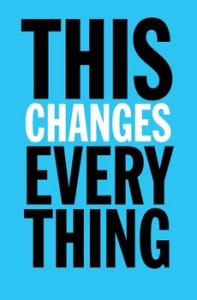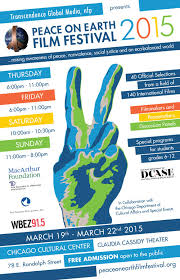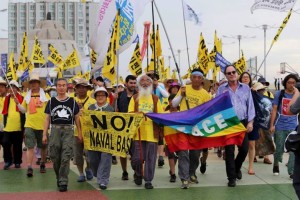A Peace Journey
Lessons from Costa Rica
by Robert C. Koehler
“This is not a way of life at all, in any true sense. Under the cloud of threatening war, it is humanity hanging from a cross of iron.â€
 Dwight Eisenhower gave the world some extraordinary rhetoric — indeed, his words have the sting of ironic shrapnel, considering how little they have influenced the direction of the country and the world in the last six decades.
Dwight Eisenhower gave the world some extraordinary rhetoric — indeed, his words have the sting of ironic shrapnel, considering how little they have influenced the direction of the country and the world in the last six decades.
“These plain and cruel truths define the peril and point the hope that come with this spring of 1953,†he told the American Society of Newspaper Editors nearly 64 years ago. “This is one of those times in the affairs of nations when the gravest choices must be made, if there is to be a turning toward a just and lasting peace. It is a moment that calls upon the governments of the world to speak their intentions with simplicity and with honesty. It calls upon them to answer the question that stirs the hearts of all sane men: Is there no other way the world may live?†(more…)


 “It’s like I’m in a never-ending battle with my brain,†Kayla said. “They called me Crazy Kayla. I have anger problems. Someone messes with me, I lose it. I was molested, raped, physically and mentally abused. I was in 127 different homes. I have a 3-month-old baby…â€
“It’s like I’m in a never-ending battle with my brain,†Kayla said. “They called me Crazy Kayla. I have anger problems. Someone messes with me, I lose it. I was molested, raped, physically and mentally abused. I was in 127 different homes. I have a 3-month-old baby…â€ I suppose some people will leave Dirty Wars imagining that we need clean wars, whatever those would be. But too many people seem to be drawing from The Square lessons they brought with them to it, including these: Thou shalt have a leader; thou shalt work within a major political party; thou shalt have an identifiable group of individuals ready to take power. I don’t think following these commandments would have easily changed the past three years in Egypt; I don’t think they’re where Egyptians should be heading; and I’m even more confident they’re blind alleys in the United States — where they serve as supposed remedies for the supposed failings of Occupy.
I suppose some people will leave Dirty Wars imagining that we need clean wars, whatever those would be. But too many people seem to be drawing from The Square lessons they brought with them to it, including these: Thou shalt have a leader; thou shalt work within a major political party; thou shalt have an identifiable group of individuals ready to take power. I don’t think following these commandments would have easily changed the past three years in Egypt; I don’t think they’re where Egyptians should be heading; and I’m even more confident they’re blind alleys in the United States — where they serve as supposed remedies for the supposed failings of Occupy.  guest at the Greek table.
guest at the Greek table.
